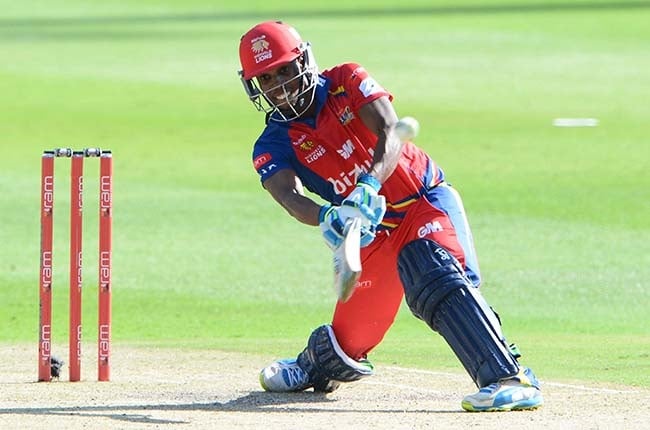
- Banned former Proteas wicketkeeper Thami Tsolekile chose not to speak about his Ram Slam match-fixing experiences, citing time constraints on Monday.
- Tsolekile said at Cricket South Africa's SJN hearings that he took a conscious decision not to walk down that path.
- Tsolekile is serving a 12-year-ban for his role in the 2015 Ram Slam match-fixing scandal.
Former Proteas wicketkeeper Thami Tsolekile refrained from talking about his match-fixing experiences at Cricket South Africa's (CSA's) Cricket for Social Justice and Nation-building (SJN) hearings on Monday, citing time constraints.
Tsolekile, whose colourful career was limited to three Tests and highlighted by yeoman service for the Cape Cobras and the Lions, was one of the high-profile cricketers implicated in the 2015 Ram Slam match-fixing scandal.
He was banned for 12 years for his role in the scam after signing a sanction agreement admitting to failing to disclose details of fixing approaches and contriving to fix a match or matches, among other charges.
An aggrieved Tsolekile used the Black Live Matter conversation that sparked last year to flesh out the process on national radio, where he aired what he perceived as unfairness or bias in the investigation.
CSA, who maintained that no matches were fixed, was forced to issue a press release defending the process behind the investigation and its integrity.
Like Lonwabo Tsotsobe, Alviro Petersen and Ethy Mbhalati, Tsolekile was also in favour of the investigative process being looked into.
"We wouldn't have enough time if we were to go through all the details of the match-fixing issue. You'll need at least three days," Tsolekile said.
"I've got a whole file, along with another one, but I made a conscious decision not to submit the match-fixing matter.
"I have decided that I'll deal with that matter differently and not on this forum. One may say it's a missed opportunity, but people have spoken.
"I know the processes that were followed and the match-fixing remarks made against me, and I don't want to go back to that."
Tsolekile also echoed Tsotsobe's allegations that the investigation that CSA's Anti-Corruption Unit head Louis Cole led, alongside former International Cricket Council head of legal David Becker, "targeted black players".
"Mr Becker and Louis Cole know there were a lot more players that were involved and, in that process, black players were targeted and treated unfairly," Tsolekile said.
"I did speak about my story on radio, which I can send. I don't want to talk about it, and it's a decision that I have made.
Judge Bernard Ngoepe, who guided the investigation, last year defended its integrity, rejecting all suggestions that there was racial bias in carrying out the probe.
"The allegation that the investigation deliberately targeted black players must also be rejected. Both white and black players were investigated and charged, based on the evidence that was collected and presented," Ngoepe said.
SJN ombudsman Advocate Dumisa Ntsebeza was impartial to Tsolekile's stance but also affirmed that the SJN was looking to investigate any cricket-related aspects that impaired the rights of cricketers.
"We'll respect that you've not wanted to speak about that aspect. This process is seeking to investigate, as thoroughly as possible, those things that can be attributed to unfair racial and gender discrimination," Ntsebeza said.
"While also looking at how those aspects have impacted on the cricketing careers of black and female cricketers."
